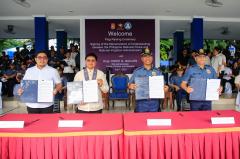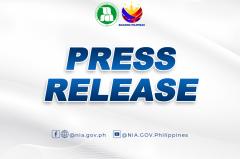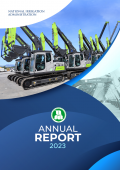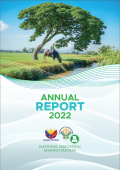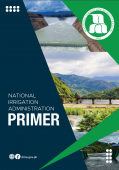NIA Central Office – The National Irrigation Administration (NIA) has projected that approximately P220 billion is needed per year to irrigate 1.2 million hectares of farmland to achieve rice sufficiency in the Philippines.
During the hearing of the Joint Committee on Murang Pagkain at the House of the Representatives on December 19, 2024, NIA Administrator Engr. Eduardo Eddie G. Guillen emphasized this crucial investment in irrigation sector. As the country faces increasing dependence on rice imports, he highlighted the urgent need for improved irrigation systems to boost palay productivity.
Administrator Guillen also pointed out that while the costs for expanding irrigation infrastructure are substantial, they are essential for enhancing agricultural output and reducing the nation's reliance on rice imports.
“Our agricultural productivity is really low. So, one key to increasing our productivity level is through irrigation,” the Administrator said.
With the right investment, the goal of irrigating 1.2 million hectares could be achieved within the next decade. The Marcos Administration has committed to improving the country’s agricultural sector by expanding irrigation systems, with plans to irrigate at least 45,000 hectares of new farmland this year.
Administrator Guillen provided cost breakdowns for various irrigation projects. Traditional irrigation systems cost approximately P1.2 million per hectare and take around three years to become operational. Solar-powered pump irrigation systems (SPIPs) are more cost-effective, only ranging between P200,000.00 to P300,000.00 per hectare. Meanwhile, repairing deteriorated irrigation structures would cost around P500,000.00 per hectare.
Despite these needs, NIA's budget for 2025 was recently slashed by 25%, reducing the Agency’s allocation from P92.5 billion to P69.3 billion in the General Appropriations Bill. Administrator Guillen expressed concern about the reduction, especially given the high cost of improving irrigation infrastructure. He remains hopeful that the bicameral committee will reconsider the proposed cuts to NIA’s budget because substantial investment in irrigation systems is extremely important in achieving rice sufficiency.
As the lead government agency for irrigation development, NIA continues to advocate for greater government investment in irrigation. Definitely, a fundamental step in ensuring long-term food security and agricultural sustainability in the country.
#bayaNIAn sa #BagongPilipinas

